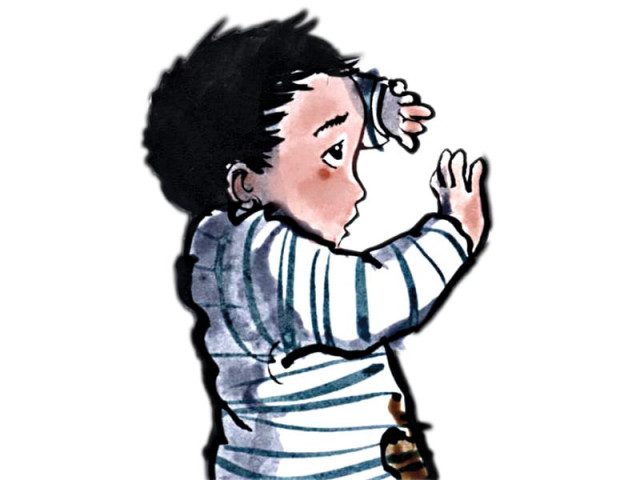Corporal punishment: Spare the rod, spoil the child?
‘Sometimes teachers vent personal frustrations on students either through scolding or physical punishment’.

The participants at the Society for the Protection of the Rights of Children’s (SPARC) consultation session on the development of a complaint mechanism for corporal punishment agreed that psychologists and child counselors should be available at educational institutes to better address the situation.
Dr Baela Raza Jamil, the programme director at the Idara-i-Taleem-o-Aagahi (ITA), said attention should be given to why teachers feel the complaint mechanism is undermining their authority and respect. She said the complaint mechanism should be revisited to accommodate the concerns of teachers.
Over 30 teachers, NGOs and Punjab government representatives attended the session which was held in collaboration with the Education Department.
Head Masters Association chairman Ali Ahmad Fian stressed the need to take into account multiple factors while trying to curb corporal punishment in schools. “Students at times engage with teachers in such a manner where the teacher must resort to some form of punishment,” he said.
Iftikhar Malik from SPARC demanded an end to all forms of corporal punishment and said the violent nature of a teacher contributed to the situation. Malik said teachers at times had to deal with 50 to 60 students and do not have adequate resources at their disposal.
Rashid Aziz, from SPARC’s legal advisory unit, said Pakistan had ratified the UN Convention on the Rights of the Child under which a child has the right to protection against all forms of physical and mental violence.
Riaz Ahmed, from the NGO Bunyad, said part of the problem was that the Education Department did not just provide education. “The Education Department is also engaged in elections and health campaigns. How can the teachers then focus on education alone?” he said.
Khoj - Society for Peoples Education director Nasira Habib said physical punishment was an ‘easy way out’ when the real need was for the teacher to be patient with students. She said that even parents chose to punish their child instead of talking to him and that this created a “culture of corporal punishment”.
Uzma Ashiq, the children coordinator at Salvation Army, said personal issues also affect the teacher’s attitude. “Sometimes teachers vent personal frustrations on students either through scolding or physical punishment,” she said. Ashiq said it was the responsibility of educational institutions to hold periodic training for teachers.
Fian added there should be psychologists in each institution to guide and train teachers.
According to the Children’s Complaint Office (CCO), a ‘Children’s Grievances Redress System’ is in place that receives complaints via SMS, email, post and even personal visits by complainants.
Ahsan Ghani, from the CCO, added that in 2005 the Punjab government had issued a notice to the Education Department that banned physical punishment for children in all schools. The notice, ‘Maar Naheen Pyar,’ was to be implemented in all private and government education institutions. He said so far only 34 cases had been registered against corporal punishment out of which 11 were under investigation while 23 had been resolved.
“It’s a myth that private schools are not involved in corporal punishment,” Ghani said. He added that all eleven complaints which were withdrawn were against private institutes.
Published in The Express Tribune, November 4th, 2011.



















COMMENTS
Comments are moderated and generally will be posted if they are on-topic and not abusive.
For more information, please see our Comments FAQ